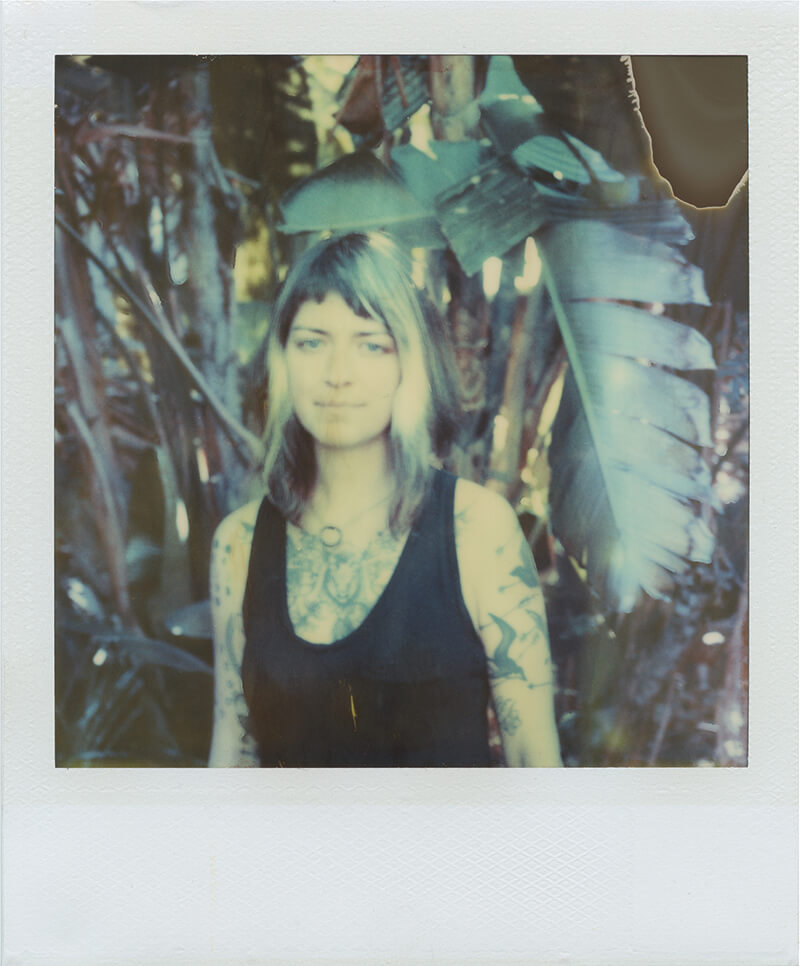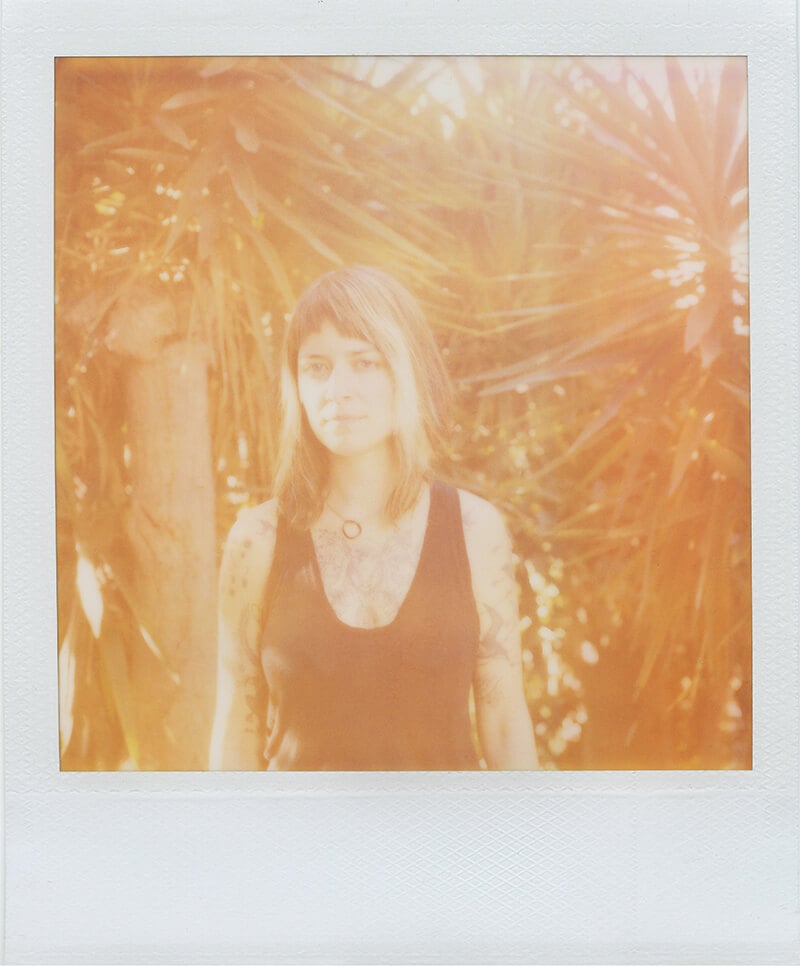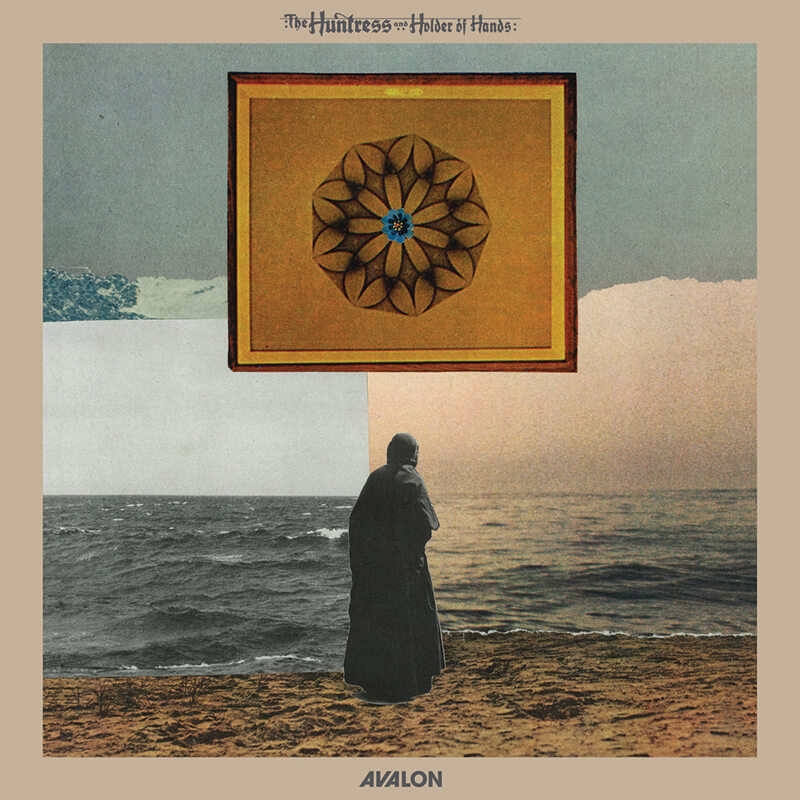“Being the leader for a band was definitely not anything I ever thought I would be doing,” says MorganEve Swain, lead singer of The Huntress and Holder of Hands, whose debut album Avalon was released in September. Swain may not have anticipated taking the helm of a group of musicians, but after the devastating death of her husband David Lamb, with whom she recorded music as the duet Brown Bird for over a decade, she found herself forced to make a decision: continue to make music or become a different person?
When did you decide you were going to make music without Dave?
Pretty much immediately. The first song that came out of me was in May, and he had passed in April, so it was basically right away. It sounds kind of cheesy but this song came to me in the shower, and I thought, “Where is this coming from?’” I’m not really much of a writer, even though I was half of Brown Bird, [writing] was always Dave’s thing. So that first song that came out, it was like “Alright, thanks Dave.”
How were you able to write and pick up something brand new?
We had been working on music together for Brown Bird’s last album. All during his illness, we were working on music, and it was really his therapy. And I latched on to that. I learned a lot from him in our years together, but one of the main things was changing how I thought about music and how I practiced music. When I was growing up, I started playing violin as a three-year-old, which was obviously not my choice. I had this kind of love-hate relationship with actually playing music for most of my childhood because I absolutely hated practicing. But to watch him use music and writing music as a form of therapy and a way of staying true to himself while his body was failing him was enlightening for me.

When he passed, I realized pretty immediately that I’m not the sort of musician he was. It is not like a primal instinct like he had, to always be creating. For me, it’s more of a struggle. But the first three songs that happened came out of thin air, they came out of nowhere. So, I was kind of like “OK, I either have to listen to that and get the shit down right now and listen to whatever this muse is that’s happening – I either have to go all in and keep being the person I was with him, or I have to drop everything and move away and become someone else and completely start over and lose everything that we had.”
How was making the album part of the grieving process for you?
The writing of the album was crucial for my grief process. If I hadn’t done that, I think I would have lost who I was. Being able to write music and work on it was both grounding for me and also a way of keeping Dave around me. I very much felt like I wouldn’t be on this path if he hadn’t been in my life. So, it felt like I was honoring him by continuing to make music, and that was definitely a healing process and a coming into my own process. And it was also learning how to trust myself and to be a single person.
Was there anything that you wrote that you made you think, “This is too personal, I don’t want to share this”? Or did you just put it all out there?
There’s only one song that didn’t make the cut. And it wasn’t so much that it was too personal, it’s that it was too blatant. It was really just a simple-sounding country song that was too literal. I didn’t only want [the album] to be about grief and about me being devastated. I wanted it to be also be a powerful record. And something that’s sometimes kind of fun to listen to. It’s not just a personal record about me and my loss and my experience but something that can relate to other people and have multiple meanings, which I think certain songs do.
How was it different to go from being the duet to being the frontwoman, running the show?
It’s really weird. I’m still kind of figuring that out. I’ve never felt like being a leader is a natural fit for me. I have a really good group of people around me in this band. I trust them, and I feel very supported by them, and that’s certainly a huge reason that I’m able to do what I’m doing. But yeah, being the leader of a band was definitely not anything I ever thought I would be doing.

So, you did it, you made the album, are you going to quit now?
No, I definitely want to keep going. This is a difficult album – it’s difficult for me on a lot of different levels. And one of the more vain levels is, I really don’t know if it’s going to stand up. When it was me and Dave, I believed in what we did 100% because I believed in him. And now I only have myself to believe in, and I don’t have that kind of ego, so I don’t know how it’s going to be. It will be interesting to see – is it the story, or if it holds up on its own. Is the music actually good, or is just kind of interesting because of where it’s coming from?
Just putting yourself out there as an artist is difficult enough but you’re sharing a very personal experience through your music. How do you feel about that aspect of it?
In a weird way, I think that vulnerability makes me confident in it. Because that vulnerability makes it like “I have to do this.” It’s not a body of work that I made with the intention of people liking it. With Brown Bird, we were like, “I wonder how people would feel if we do this?” or “Oh, did we get too heavy with that one, will Brown Bird fans still like this?” There was a lot of discussion like that and wanting to make stuff that people would actually like and keep our fans and keep them happy.
With this record, I didn’t have any of that thought process. It was just like “This shit’s coming out of me, I’m gonna do it.” It was a necessity – I had to do this. The next record I’ll feel differently about it, because it will be like, “OK, people either really hated that one or they loved it, so NOW what do I do?” And I’ll change my process accordingly.
**Photos by Mikael Kennedy

The Huntress and Holder of Hands – Avalon
Standout Track: “Call to Arms”
Follow on Twitter @brownbirdmusic
